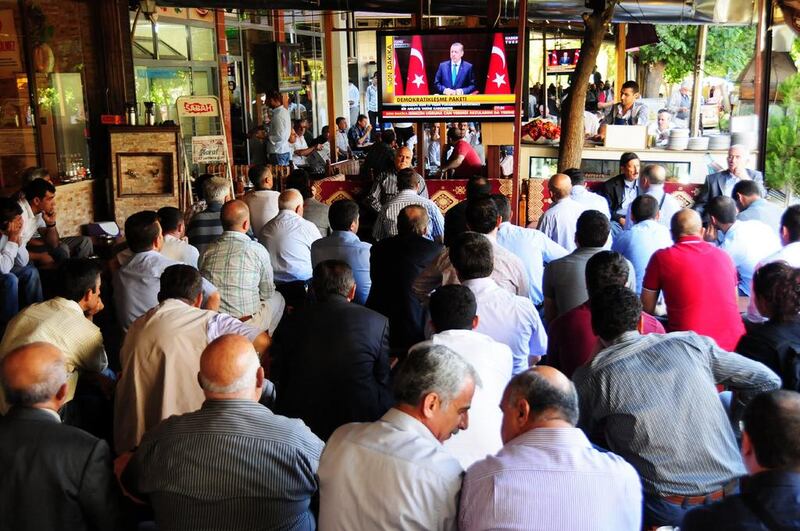Jonathon Burch
ANKARA // Turkish Prime Minister Tayyip Erdogan yesterday announced long-anticipated reforms seen as designed to salvage a fragile peace process with Kurdish insurgents, including changes to the electoral system and increasing language rights.
The Kurdistan Workers Party (PKK) insurgency has tarnished Turkey’s human rights record and crippled the economy in the mainly Kurdish south-east of the country.
Mr Erdogan has invested much political capital in the peace initiative, which has drawn strong public support but is increasingly attracting fierce nationalist criticism over perceived concessions to militants officially deemed terrorists.
In a major policy speech, Mr Erdogan said parliament would debate whether to reduce the threshold for a political party to enter parliament to 5 per cent of the national vote, or even eliminate the barrier completely and introduce a “narrowing” of the current constituency system.
However, a co-leader of the pro-Kurdish Peace and Democracy Party (BDP) said the proposals failed to go far enough to advance peace with the militant PKK, which this month halted its withdrawal of fighters from Turkish territory on grounds that the government was not moving swiftly enough to see through its end of the deal.
The current 10 per cent threshold, among the highest in the world, has kept pro-Kurdish groupings outside of parliament and has been one of the main grievances of Turkey’s Kurds who make up around a fifth of the country’s 76 million population.
Mr Erdogan said the so-called “democratisation package” would also allow for education in languages other than Turkish at non-state schools, another long-held demand by Kurdish politicians.
“Today our country, our nation, is experiencing an historic moment. It is passing through a very important stage. We are taking important steps to make Turkey even greater,” Mr Erdogan told a news conference in Ankara.
“Our people’s greatest wish is to strengthen our domestic peace, further our social cohesion and solidarity, and fortify our tranquillity,” Mr Erdogan said.
While Mr Erdogan reiterated that the proposed reforms are not directly linked with efforts to end the 29-year conflict with the outlawed PKK, the changes are largely viewed as an effort to advance the flagging peace process.
But BDP co-chairwoman Gultan Kisanak said the measures fell short. “The democratisation package does not meet our expectations,” shesaid. “The package does not have the capacity to overcome the blockages in the peace process.”
Jailed PKK leader Abdullah Ocalan and Turkish officials began peace talks around a year ago and in March called a halt to hostilities in a conflict which has killed more than 40,000 people. The ceasefire has largely held.
Earlier this month the PKK warned that hostilities could resume without concrete action by the government.
The government accuses the militants of failing to live up to their side of the bargain, and Mr Erdogan has previously said only 20 per cent of the PKK fighters had withdrawn from Turkey.
Mr Erdogan also proposed reforms to restrictions on the Islamic head scarf, saying women employees would be allowed to cover their heads at state institutions except in the military and security services, and for judges and prosecutors.
The regulation on head scarves dates back to the inception of the Turkish Republic and has kept many women from joining the public work force. Relatively low female employment in Turkey is regarded as one of the country’s economic weaknesses.
Mr Erdogan also said the state would return land belonging to Mor Gabriel, the world’s oldest Syriac monastery in southeastern Turkey. Some 20,000 Syriac Christians live in Turkey, mostly in Istanbul, having fled their ancient homeland for economic and security reasons.
*Reuters





